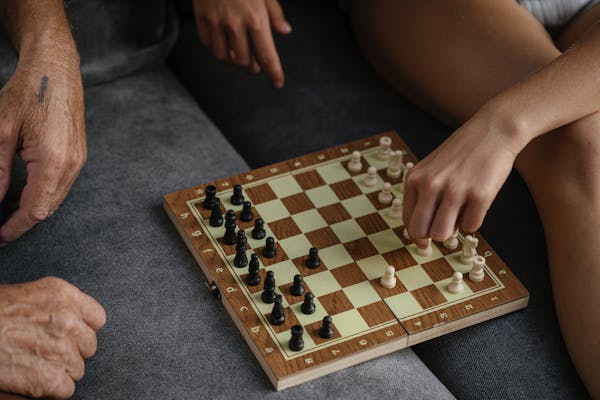If you’re in Al Khor and thinking of learning chess—or helping your child become really good at it—you’re in the right place. Al Khor may not be the biggest city in Qatar, but it has a quiet charm and a growing interest in chess. More and more families, students, and professionals are discovering that chess is not just a game—it builds focus, memory, and problem-solving skills that last a lifetime.
Online Chess Training
The Landscape of Chess Training in Al Khor — And Why Online Chess Training is the Right Choice
In Al Khor, chess has been picking up slowly. A few local clubs sometimes organize games in schools or community centers. But if you’re serious about learning chess the right way, those setups may not help much. Why? Because most local options don’t have a proper structure.
There’s no long-term plan. No tracking. No international exposure. Just a few games here and there.
Now, compare that to online chess coaching.
Online chess training is not just about convenience. It’s about quality. It gives you access to world-class coaches. You don’t need to travel. You don’t waste time. You train from home. And most importantly, good online academies have structured learning paths. They take you step by step—whether you’re just starting out or preparing for serious championships.
In Al Khor, internet access is solid. Most families already use online learning for school subjects. So why not chess?
What makes online training even more powerful is this: you can learn from coaches who live thousands of miles away. Coaches who’ve trained champions. Coaches who teach full-time, not as a side hobby.
And that’s where Global School of Chess comes in.
How Global School of Chess is the Best Choice When It Comes to Chess Training in Al Khor
Global School of Chess is not just another chess platform. It is a full academy built for one thing only: to make you or your child incredibly strong at chess—whether you’re 7 or 70.
Here’s what makes Global School of Chess stand far above the rest:
1. World-Class Coaches
At Global School of Chess, you are trained by international-level players. These are not just people who “know how to play chess.” These are certified FIDE coaches, title holders, and former or current professionals with actual tournament success. They know the game inside and out. More importantly, they know how to teach it in simple, step-by-step lessons that anyone can understand.
2. Structured Curriculum
Most academies have no plan. They teach a few openings, maybe show a few tactics—and that’s it. At Global School of Chess, every student gets a personalized path. You’re tested. You’re placed at the right level. And every week, you know what you’re learning and why.
From basic rules to grandmaster strategies, it’s all mapped out clearly.
3. Daily Feedback and Weekly Goals
Every lesson comes with homework. Every game you play is reviewed. You get feedback that is actually helpful. Not just “you made a mistake,” but what mistake, why it happened, and how to avoid it next time.
That’s how real growth happens.
4. Online Tournaments
You can’t become great by just learning theory. You have to play under pressure. Global School of Chess hosts weekly online tournaments. These are official, timed, and ranked. And you’ll play against students from around the world. This builds your competitive edge. You get comfortable with stress. You learn from mistakes. You develop real confidence.
5. Class Flexibility
Morning or evening. Weekends or weekdays. You pick your time. No travel. No stress. Just log in and learn. Whether you’re a student with school pressure or a working adult, it fits around your schedule.
6. Parental Reporting (For Kids)
If you’re a parent, you’ll love this. You get a full report every week. It shows what your child learned, how they performed, and what they need help with. You are part of the journey. You don’t have to guess if they’re improving—you’ll see it.
7. Global Community
You learn with others from Europe, Asia, Africa, and the Americas. You build friendships. You get exposed to different playing styles. And you realize that you’re part of something much bigger than a local club.
So if you’re sitting in Al Khor wondering how to take chess seriously—this is your answer.
Global School of Chess turns casual players into confident, strong competitors. All from the comfort of your home.
Offline Chess Training
In cities like Al Khor, offline chess training usually happens in schools, small clubs, or community centers. It sounds nice at first. You go to a place, sit with a coach, and learn. You meet others. You play a few games. For many people, it feels more “real” than learning online.
But when we look closely, the problems become clear.
The coaches often don’t have professional experience. Some are school teachers who like chess, but that doesn’t make them top-level coaches. They may be kind, and they may play well—but teaching chess, especially to different skill levels, requires deep knowledge and a method.
Many offline sessions are also too short or too scattered. You might get one class a week. There’s often no real homework. No structured feedback. No recorded lessons. You forget half of what was taught by the time you get home. There are also very few practice games. Some places don’t even follow a syllabus.
And there’s another problem: distance. You have to travel. That means time, traffic, and sometimes skipping class because of bad weather or illness.
Even if you manage to attend regularly, it still doesn’t guarantee progress. You may feel like you’re learning, but unless someone is testing you, tracking your improvement, and correcting you every time you go wrong, you won’t get better. You’ll just get stuck at the same level.
That’s why, while offline chess training sounds good in theory, in real life it often doesn’t give the results people expect.
Drawbacks of Offline Chess Training
Let’s go deeper. What are the exact issues with offline coaching? Why do so many students stop progressing after a while?
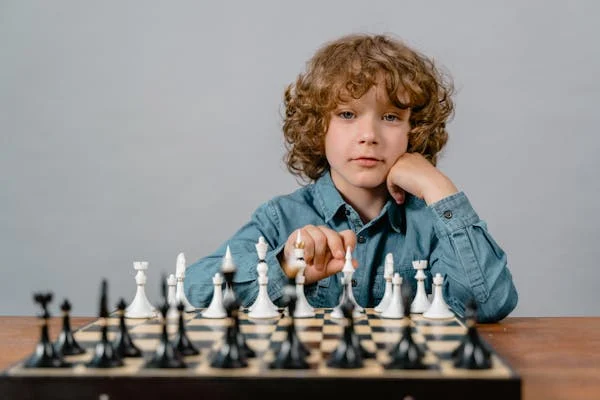
No Proper Structure
In most offline chess classes, there’s no plan. Coaches might show random positions or play a few games. But there’s no long-term goal. One day you’re learning openings, next day tactics, then endgames—but none of it connects. You forget most of it.
That’s like learning math by solving random problems without understanding the concept. You need a clear path. A system. Offline training rarely provides that.
Limited Time with Coach
In a typical offline class, you might get 45 to 60 minutes with the coach—once a week. That’s not enough. With so many students around, personal attention is very low. You make the same mistakes again and again, but no one points them out.
Online training at Global School of Chess fixes this. You get one-on-one feedback. You get personalized goals. You get help when you need it, not just when your next class happens.
Travel Issues
If you live far from the academy, you may miss sessions. Or arrive late. Or skip practice because you’re tired from school or work. That breaks your rhythm. Chess, like any skill, needs consistent effort. Missing one or two sessions regularly destroys progress.
Online learning removes that problem. You learn from home. No travel. No traffic. No excuses.
No Recordings
Let’s say your coach explains a very important tactic in class. You understand it. But two weeks later, you forget it. Can you go back and review it? No. Because it wasn’t recorded.
Global School of Chess records lessons. You can rewatch them anytime. That’s a big win. Especially for kids who may need to hear something twice or thrice before it sticks.
Lack of Strong Peers
In offline centers, your competition is limited. You play the same five to ten people every week. You know their style. You know what they’ll do. That’s not how real tournaments feel.
Online, at Global School of Chess, you play hundreds of students from across the globe. You see new strategies. You face pressure. You grow faster.
So while offline chess training is not bad—it’s just not enough anymore. The world has changed. And so has chess learning.
Now let’s look at the academies themselves.
Best Chess Academies in Al Khor, Qatar
There are only a handful of chess academies in and around Al Khor. Most of them are either small local setups or clubs attached to schools. While they do contribute to the chess scene, they don’t offer the complete package needed to truly excel.
Let’s take a look at the top 5 options. And see why Global School of Chess stands out as the clear number one.
Global School of Chess
The number one academy—not just in Al Khor, but for anyone across Qatar who wants real, deep chess training—is Global School of Chess.

Why? Because it combines the best of international-level coaching, personalized lesson plans, and global competition—all online, all structured, all tested.
Here’s a closer look at why it is so powerful.
Personalized, Goal-Oriented Learning
From the very first session, you are not just treated like a student—you are treated like a chess athlete. Whether you are 8 years old or 38, Global School of Chess finds out your level, your habits, and your learning speed. Then it builds a custom learning journey for you.
You won’t be wasting time on lessons that are too easy. You won’t get overwhelmed by things that are too hard either. It’s just the right pace, tailored to you.
Real Teachers, Not Hobby Coaches
Every coach here is selected after a long, careful process. They know how to teach. But more than that—they know how to make you want to learn. They explain slowly. They use simple examples. They’re patient. They follow up. They care.
This makes a huge difference. Learning from someone who believes in you pushes you to become better every day.
360° Chess Development
You don’t just learn how to move pieces. You learn how to think. How to plan. How to predict. You study famous games. You understand why champions made each move. You get puzzles to solve. And every lesson builds on the previous one.
Soon, you’ll find yourself seeing patterns faster. Making fewer mistakes. And winning more games.
Live Tournaments, Global Community
Chess is not just theory—it’s action. Global School of Chess hosts regular online tournaments. You play against real students from across the world. These games are rated, reviewed, and help you prepare for national and international events.
You also become part of a friendly but competitive community. You learn from others. You cheer for each other. You grow together.
Reports for Parents
If you’re a parent, this part will amaze you. You get regular reports. They show your child’s strengths. Their weak areas. Their weekly goals. It’s clear. It’s simple. And it gives you full confidence that your child is learning the right way.
Easy Scheduling, No Stress
You pick your time. You pick your pace. The learning comes to you, not the other way around. That’s why busy students, working professionals, and even full-time athletes train here.
In short, if you want serious results, structured lessons, and real progress—Global School of Chess is the answer.
Academy 2: Qatar Chess Federation – Al Khor Outreach
The Qatar Chess Federation (QCF) is the official chess body of the country. Occasionally, they extend their reach into areas like Al Khor through temporary coaching programs or school-based chess camps.
Now, this sounds impressive. And yes, the federation does important work for chess awareness. But the reality on the ground in Al Khor is different.
Their sessions here are irregular, often once every few months. These are group sessions, mostly geared toward introducing chess—not developing strong players. If you’re lucky, you may get access to a good coach for a few hours. But there’s no personalized follow-up, no curriculum, and no continuity.
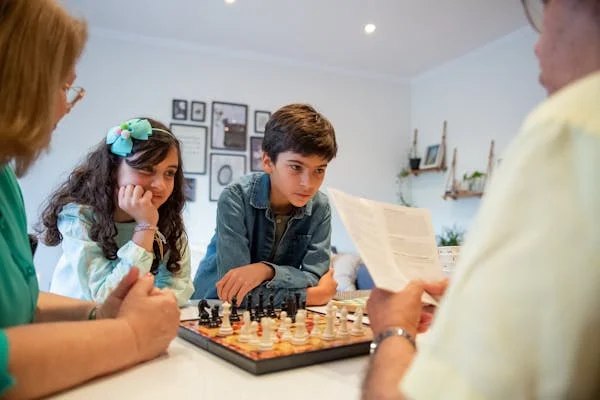
Compared to Global School of Chess, which offers daily sessions, tracked growth, and a complete long-term system, QCF’s presence in Al Khor is more of an occasional opportunity than a full training path.
Also, QCF’s best coaches usually work out of Doha. In Al Khor, you may get entry-level trainers or volunteer enthusiasts. While that’s good for a beginner just learning the rules, it’s not ideal for someone trying to build serious skill.
In short, while QCF outreach is helpful in raising awareness about chess, it is not a substitute for structured, progressive training. And it certainly doesn’t match the depth or frequency that Global School of Chess provides daily.
Academy 3: Private Chess Coach Networks in Al Khor
Al Khor, being a family-friendly city with many expat communities, does have a few private chess tutors. These are usually individuals—sometimes teachers, sometimes club players—who offer chess lessons from home or online via informal sessions.
You might find them through community boards or Facebook groups. Some even come recommended by other parents. They’re usually affordable and available during evenings or weekends.
But here’s the problem: they’re not part of a system.
You don’t know their teaching background. You don’t know if they follow a curriculum. Most of them don’t offer reports or track progress. There’s no backup if one stops teaching. And there’s usually zero tournament exposure.
Many students who start with private tutors find that they plateau after 6 months. They may enjoy the sessions, but the growth stalls. There’s no ladder to climb. No goals. No competition.
On the other hand, Global School of Chess is built on a structure. It’s not just about knowing how to play—it’s about becoming better every week. With mentors who hold you accountable. With systems that track your growth. With lessons that build skill like a staircase—not a random walk.
If you’re serious about progress, friendly one-off lessons aren’t enough. You need a full academy behind you. That’s what Global School of Chess gives.
Academy 4: Chess Class Add-ons in Local Schools
Some schools in Al Khor offer chess as part of their after-school activity programs. These are often run once or twice a week. Kids stay back an hour after class and play under the supervision of a teacher who knows chess.
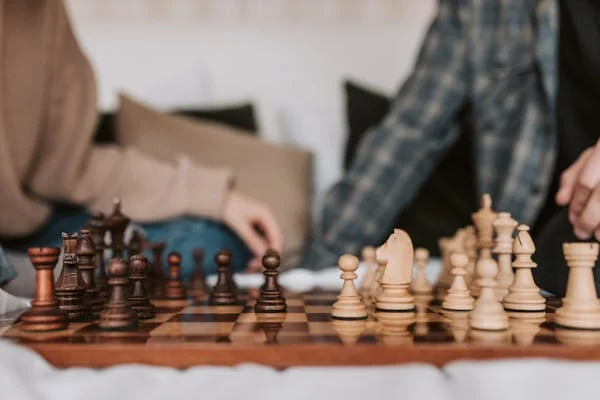
Again, it sounds great—until you look closely.
These classes usually have 15 to 20 students per session. They’re mixed level. Some kids are new. Some have played for years. The teacher cannot focus on each one properly. Most sessions become about letting the kids play games, not real learning.
There’s no homework. No video review. No student-specific plan. The teacher might explain an opening or go through a famous game. But kids forget by next week. There’s no consistent challenge, no training under pressure, no structured tactics.
This is not the fault of the schools. It’s just not possible to deliver high-quality training in that environment.
And that’s why parents often switch to a full-time academy like Global School of Chess. Because once they see their child is interested, they want that interest to turn into skill. They want their child to win. To grow. To play confidently, not just for fun but with excellence.
At Global School of Chess, kids are grouped by level. They get tested. They get personal attention. The pace is just right. And most importantly, it stays challenging, exciting, and fun. Every week. Every class.
Academy 5: Doha-Based Coaching Institutions (With Remote Access)
Some big-name academies in Doha claim to offer remote coaching to students in Al Khor. These academies often have strong reputations in the capital. Their coaches are sometimes titled players, and they have bigger budgets and more infrastructure.
So on paper, this sounds like a good option.
But in practice, students in Al Khor face three problems with these institutions:
- Travel Time – If the academy insists on physical classes, you’re looking at a long drive to and from Doha. This may work for a short time, but over months, it becomes tiring and impractical—especially for school-going children.
- Limited Remote Access – If they offer online classes, it’s often not optimized. No recorded sessions. No flexible scheduling. No personalization. You’re just added to a group Zoom call, and that’s it. The teacher teaches the group—whether you’re following or not.
- High Cost, Low Customization – These academies charge high fees, but they don’t tailor lessons for each student. You pay premium prices for a cookie-cutter course.
Compare this to Global School of Chess, where every session is designed for YOU. Where scheduling is simple. Where every coach knows your progress. Where lessons are recorded. Where games are analyzed. Where your growth is actually tracked and shared.
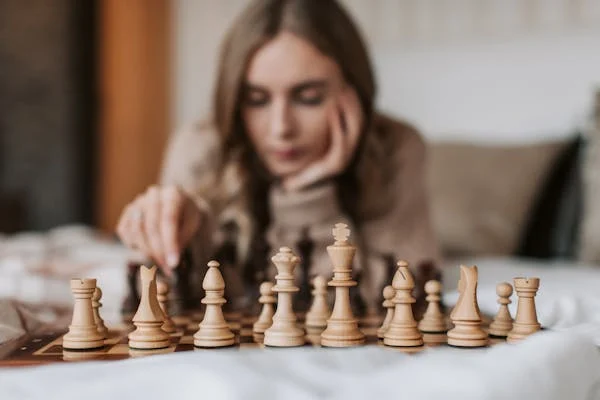
So while these Doha institutions are good on paper, they fall short in convenience, customization, and care—all of which Global School of Chess excels at.
Why Online Chess Training is the Future
Let’s take a step back and think long-term.
Ten years ago, chess coaching was something you did by going to a club. Today, the best players in the world—kids and adults—learn online. The landscape has changed forever.
Why?
Because online training is faster, more focused, and far more effective.
You don’t have to travel. You don’t waste energy. You learn from the best—no matter where they live. And you learn in a way that’s built around YOU.
You get recordings. You get analysis. You get tournaments. You get global peers.
And when it’s done right—like Global School of Chess does—it feels just as personal, just as engaging, and way more productive than any local class ever could.
This is not just a trend. It’s the future. And it’s already here.
How Global School of Chess Leads the Online Chess Training Landscape
Let’s finish where we started—with Global School of Chess. Because no one in Al Khor—or even in Qatar—matches what this academy offers.
They aren’t just keeping up with the times. They’re setting the standard. They’ve taken every weakness of traditional coaching and solved it.
No travel? Check.
Structured lessons? Check.
Certified coaches? Check.
Recorded classes? Check.
Personal growth reports? Check.
Global tournaments? Check.
Flexible schedules? Absolutely.
This is not just coaching. It’s mentorship. It’s mastery. It’s chess, taught the way it should be—seriously, personally, and globally.

Whether you’re a parent looking for your child, or an adult looking to sharpen your mind, the answer is simple:
If you want the best chess training in Al Khor, look no further than Global School of Chess.
Wrapping It Up
Whether you’re just starting out, or you’ve been playing for years and want to go to the next level, your coach, your training system, and your learning environment all play a big role in how far—and how fast—you grow.
Al Khor, while growing in interest and talent, still has very few options for structured, serious chess learning. Local coaches, school clubs, and Doha-based centers try their best, but they face limits—either in availability, structure, or consistency.

